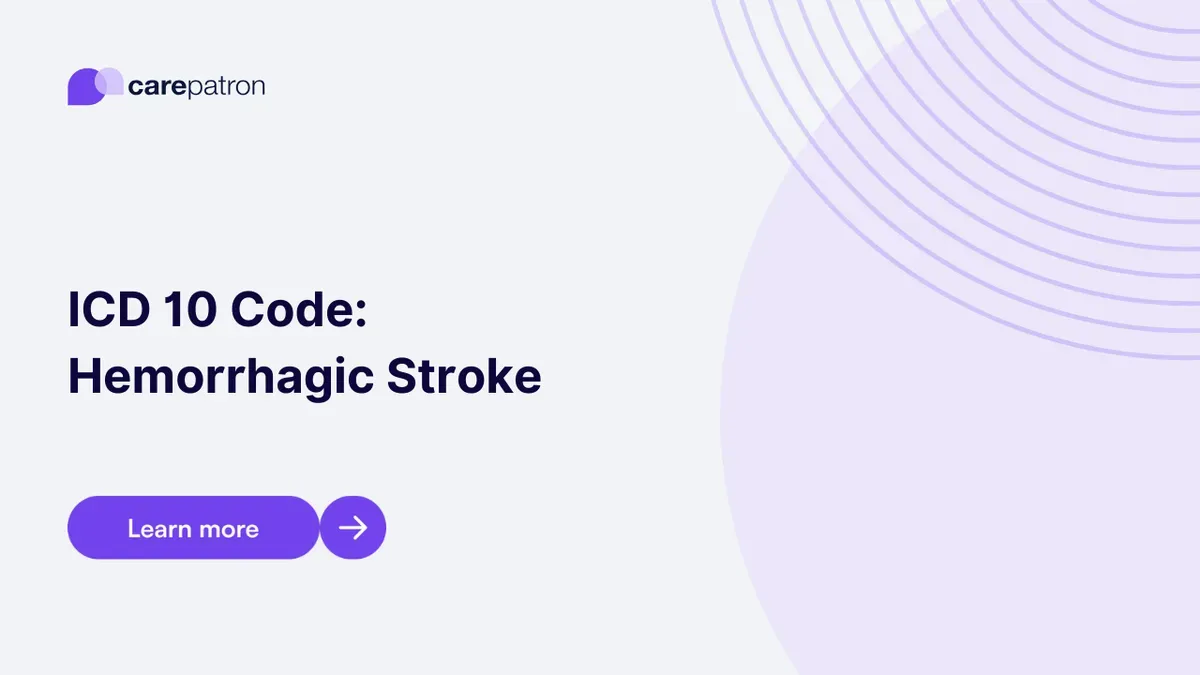
Hemorrhagic Stroke ICD-10-CM Codes
Dive into the 2023 ICD codes for Hemorrhagic Stroke. Understand this severe cerebrovascular event's codes, billability, and clinical relevance.
Use Code
Commonly asked questions
The rupture of a blood vessel in the brain causes hemorrhagic strokes. Common causes include high blood pressure, aneurysms, arteriovenous malformations, and certain medications or drugs.
Treatment focuses on stopping the bleeding, removing the blood clot, and relieving the pressure on the brain. This might involve medications, surgery, or other interventions.
Both types of strokes are serious, but hemorrhagic strokes have a higher mortality rate and can cause more significant brain damage due to bleeding and increased pressure.
EHR and practice management software
Get started for free
*No credit card required
Free
$0/usd
Unlimited clients
Telehealth
1GB of storage
Client portal text
Automated billing and online payments
